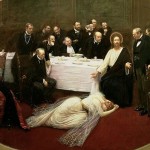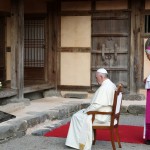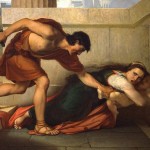Since the identity of this community, reduced to the principles of autonomy, has no positive values to propose, it expresses itself by using instruments of the state in negative activities – the exclusion of elements belonging to the canon of values of ethically rich communities from public space[9]. Moreover, the public presence of content connected with their ethos – models of behaviour, customs, symbols – is presented perversely as a threat to the very principle of the state of ethical minimum, while in reality, it is only its consequence and contents; however, if in fact it does constitute a threat to someone, it is only to the ethical identity of a community that supports the idea of pure autonomy, and must deeply move their internal emptiness.
Therefore, when we hear today voices warning about the danger of a fundamentalist state, it is worth considering exactly whether these warnings are indeed expressed in the name of the defence of the state of ethical minimum, guaranteeing all citizens the freedom to live in accordance with their personal religious and ethical convictions, or whether it is only the voice of the next crusade of a new belief group, which wishes to impose its religion, devoid of ethical content, on the whole of the political community. Contrary to appearances, it is not at all the groups of apologists of individualism and of the ruthless autonomy of the individual, who fight the fundamentalist state loudest of all, that best defend the principles of the modern state. The mainstay of the state of freedom is rather created by communities with a rich ethos, in which, in the hierarchy of values, the highest position is occupied by the free man, searching independently and responsibly for the road to that, which is absolute, guided however, by the signs offered to him by his community.
[1] “State of law” means here a state whose main task is to protect elementary individual rights, however, not a state which only observes formal legal procedures, although undoubtedly they remain closely connected – formal procedures constitute a guarantee of material rights.
[2] We have seen examples of this in the past. The last Polish king from the Jagiellonian dynasty, Zygmunt August (1520-1572), refused to settle religious disputes, saying to the Members of Parliament: “I am not master of your consciences”.
[3] Voegelin, E., The Political Religions.
[4] This idea was accurately expressed by George Orwell in 1984: “The party seeks power entirely for power’s sake. We are not interested in the good of others; we are interested solely in power. Not wealth or luxury or long life or happiness: only power, pure power… We know that no one seizes power with the intention of relinquishing it. Power is not a means, it is an end.”
[5] This term was introduced by Jacob Talmon in his book The Origins of Totalitarian Democracy (Secker and Warburg, London, 1952)
[6] Where the introduction of democratic principles did not find sufficient support and strong enough limitation in the institutions of the state of law, as in the times of the French Revolution, a ruthless contest took place between the supporters of various versions of belief in democracy. Even the parliament became a battlefield, and not only in a metaphorical sense, where losing the vote could mean losing one’s head.
[7] It is, after all, psychologically understandable. Interest in participating in power grows in proportion to its scope. If its function were to be reduced to only the role of a “night watchman”, hardly anyone would find it attractive.
[8] The contemporary dispute about this was inspired by John Rawls’ book A Theory of Justice.
[9] An obvious example of such negative activity was the verdict of the Supreme Court of Indiana in 1999; the Court forbade the public display of the symbol of the Decalogue.
For my own early deconstruction of the fictional division between the secular and the sacred see: Big Win for Little Sisters is a Huge Loss for Catholicism.
Please consider making a donation to this blog through the donation button on the upper right side of its homepage.
Stay in touch! Like Cosmos the in Lost on Facebook:












